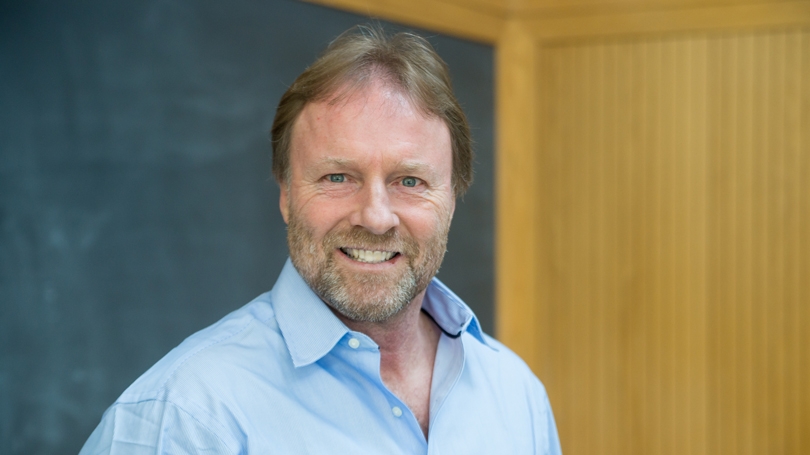
Menu
- About
- Departments & Programs
- Faculty Resources
- Governance
- Diversity
- News
Back to Top Nav
Back to Top Nav
Back to Top Nav
Back to Top Nav
This is the last in a series of profiles of the 10 new endowed professors in the arts and sciences.
Robert Staiger joined the faculty of Dartmouth’s economics department this year, following a stint as the Roth Family Distinguished Visiting Scholar in 2013. Previously he was the Stockwell Professor of Economics at the University of Wisconsin. An expert on international trade policy, he is a fellow of the Econometric Society, a research associate of the National Bureau of Economic Research, a reporter for the American Law Institute, and editor of the Journal of International Economics.
It’s a great honor. And the resources provided made it possible for me to come to Dartmouth without leaving my graduate students from Wisconsin high and dry. They’re in residence here for a term, engaging in seminars and interacting with other faculty. None of that could have happened without the extraordinary support that the Roth Distinguished Chair provided.
I’m co-editing a handbook of international trade policy as part of Elsevier/North Holland Publishing’s series in economics. It’s a compendium of the best people writing on the latest research in this area, and this June I hosted a conference here with about 50 international economists from around the world, 18 of them presenting chapters. Also, I’ve been involved in analyzing detailed bargaining data from the World Trade Organization, which had preserved all of the data of the GATT bargaining rounds from the 1950s through the mid-’80s in its basement. I’ve been involved in getting them into electronic form, and they’re finally becoming available for researchers. They are unique—offers and counter-offers of tariff bargains. There’s very little data out there on important bargains where you can actually see what the bargainers are doing, and this is a real, high stakes environment where you can see how governments and negotiators were bargaining back and forth. I’m hoping to engage Dartmouth undergrads in this work, because it’s a huge amount of unanalyzed data that is very analyzable.
I enjoy teaching undergrads who are interested in the intellectual features of the field, and there are plenty of them here. The way I tend to teach the international trade course reflects my own research, which is very policy oriented. If I weren’t continually updating my teaching with new knowledge and my research interests, I would be deadly bored, and probably deadly boring. I can give students more of an understanding of current research in trade policy issues than they would get from any textbook. I enjoy taking research ideas and boiling them down so they’re understandable for non-experts—and that process is also useful for research, because it helps gel in your mind what you’ve done, so you can see the forest from the trees.
Both my wife and I were undergraduates at Williams, so we have a connection to these small New England colleges and college towns. That whole atmosphere makes every day fun. And there are very few departments in the country that have as many good trade economists as are here, so that facilitates a lot of things.
Since 1787, Dartmouth has recognized its top faculty with named professorships. These chairs—traditionally supported through endowed gifts from alumni, family, and friends of the College—honor faculty whose scholarship, teaching, and service exemplify Dartmouth’s core mission.
“Endowed professors reflect the best of Dartmouth,” says Dean of the Faculty Michael Mastanduno. “These scholars are not only at the top of their respective fields—they are generous and committed teachers and outstanding citizens of the College community.”
This year, 10 members of the Faculty of Arts & Sciences have been appointed to endowed chairs. In addition, the Tuck School of Business appointed Praveen Kopalle the Signal Companies’ Professor of Management; and Rahul Sarpeshkar joined the faculty this year as the inaugural Thomas E. Kurtz Chair in the William H. Neukom Academic Cluster in Computational Science, with a primary appointment at Thayer School of Engineering